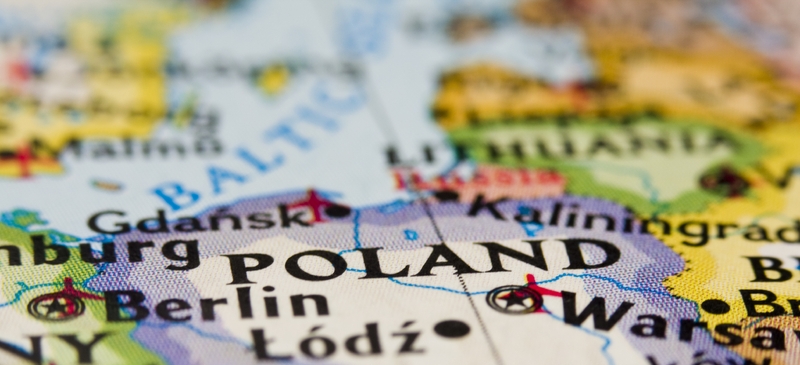
Poland’s poll and the EU treaty
by Katinka Barysch
Poland’s early election may coincide with the last days of talks on the new EU Reform Treaty. Although the Kaczynskis are unlikely to reopen a deal agreed in June on the treaty's content, last minute political posturing for a home audience could delay the text being signed off.
Many Europeans were relieved when Prime Minister Jaroslaw Kaczyinski sacked his junior coalition partners in August. Kaczynski’s somewhat prickly and paranoid Law and Justice party (PiS) has been difficult enough to deal with. The inclusion of the arch-nationalist League of Polish Families (LPR) and Andrzej Lepper’s populist Self-Defence made it worse. This government has (perhaps understandably) blocked EU talks with Russia, (outrageously) used World War guilt to get more EU votes and (unwisely) threatened to veto the whole Reform Treaty. The spectre of Poland holding an election exactly when the inter-governmental conference (IGC) is supposed to wrap up the treaty talks will haunt many in foreign ministries across the EU.
The Polish parliament has postponed the final decision of whether and when to hold an early election to September 7th. The PiS minority government has little reason to hang on while the opposition Civic Platform (PO) would love to capitalise on its current poll lead. The earliest possible date –and the one most widely mooted – is October 21st. That is three days after EU leaders are supposed to sign the Reform Treaty.
The Kaczynskis (Jaroslaw and his twin brother Lech, who is president) would gain little from making the treaty an election issue. After all, they had claimed victory after the June summit. Although the other Europeans had refused to re-open talks on the EU voting system – Poland had insisted on sticking with the Nice formula, then pushed for a rule based on the square root of populations – they did agree to delay the introduction of the ‘double majority’ system until 2017. Polish officials afterwards grumbled that an agreement on blocking minorities was not sufficiently spelled out. But this is not a big enough issue to re-open the entire treaty package.
The PO does not like the June deal: it was PO leaders who had come up with the memorable “Nice or death” slogan and first pushed for the square roots system. But on the whole, the PO’s attitude towards the EU is similar to that of the PiS, although less anti-German (which is why Jaroslaw has recently been portraying the PO as Berlin’s puppet). To gain votes, the PO will want to stress what makes it different from the PiS, such as administrative competence, pro-business policies and more liberal attitudes towards social issues.
Neither the LPR nor Self-Defence can be sure to overcome the 5 per cent threshold for parliamentary representation. So they will run together, and do their utmost to steal nationalist and conservative votes from the more mainstream PiS and PO. Their eurosceptic rants and calls for a referendum on the treaty could put the PiS and the PO on the defensive. Despite the Poles’ generally pro-EU attitudes, many Polish party leaders appear to have convinced themselves that elections are won on the right.
The lone pro-European voice in the forthcoming election will be Aleksander Kwasniewski, the popular former president, and the Left and Democrats, a movement put together from bits of the former Communist party. Although the left almost faced political oblivion in the 2005 election, it is now rising steadily in the polls.
For most Poles, Europe is not a major concern at the moment. Life is good: the economy is growing at a brisk 7 per cent, unemployment is at a post-Communist low and EU money has started to flow in. In the latest Eurobarometer survey, almost 80 per cent of Poles said their country has benefited from being in the EU.
Nevertheless, Europe could become an issue in the election campaign, not least because the Commission is asking for radical restructuring of the iconic shipyard in Gdansk. To prevent the radical parties from benefiting from anti-EU sentiment, the Kaczynskis could seek to postpone final agreement on the treaty. This would be no disaster: signing it at the December summit would still leave EU members enough time to ratify it before the 2009 deadline. But the Portuguese presidency would be peeved (it wants to focus on Africa in December), as would be Gordon Brown who wants to get the treaty ratification out of the way as quickly as possible. Poland would once again be singled out as the EU’s troublemaker.
Those who are hoping for a fundamental shift in Poland’s EU stance after the election may be disappointed. The PO’s Europe policy would be more polished and constructive, but no less assertive when it comes to Poland’s national interest. Moreover, the PO is unlikely to gain an outright majority. Although the PO and the PiS agree on much, personal animosities would make ruling together fiendishly difficult. The PO and the Left, on the other hand, share a dislike of the Kaczynski twins. But it is doubtful whether this would be enough to overcome the PO’s suspicion of the former Communists, as well as programmatic differences. As long as Poland is ruled by unstable and often short-sighted coalitions, the EU will remain a tempting platform for politicians to showcase their nationalist credentials.
Katinka Barysch is chief economist at the Centre for European Reform.
